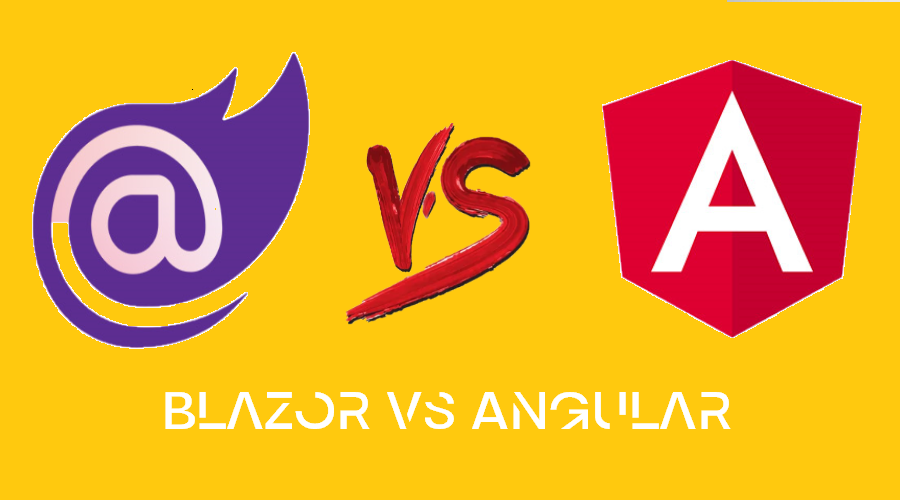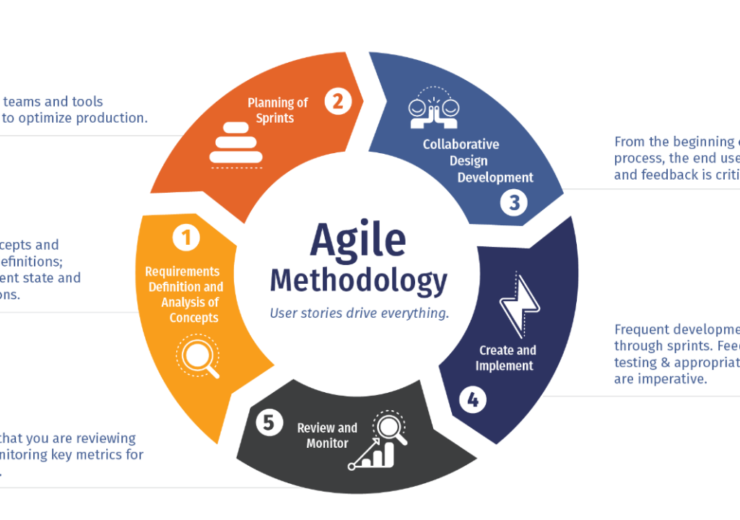A Battle of Blazor vs Angular in 2023

Every business nowadays needs to have an online presence and to achieve that, they need a reliable framework that can help companies develop and manage their websites and software applications. Now, a variety of development technologies are already available in the market. Today we are going to talk about two such development frameworks that are recently very popular, i.e. Blazor and Angular. Many experts seem to have already drafted a detailed comparison of Blazor vs Angular to determine which one is the best.
If you too are confused between these two web development frameworks then let us help you with that. Here in this blog, we are going to discuss the pros and cons of each framework and what are the key differences between both.
Blazor
Blazor is a .NET framework that lets you write .NET code running on the Web. Blazor code can be executed in any web browser, and the result will be accessible from within your web page.
Blazor allows you to create .NET apps for the web using C# and Razor syntax, without requiring any specific browser plugins or extensions. It’s an open-source project that’s supported by Microsoft
In short, Blazor allows you to write native desktop applications that run in the browser. Blazor is built on top of the .NET Core runtime, which means it can run on Windows and Linux.
Advantages of Blazor
Blazor offers some advantages over traditional web development: you don’t have to worry about writing HTML, CSS, or JavaScript; you can use razor expressions instead of regular string literals; there is no need for separate compilation or pre-rendering like with Webpack; and there is no need to maintain multiple versions of your app because everything runs through the browser pipeline. Blazor also enables features such as server-side rendering and shared code across multiple pages by default.
Blazor also supports Razor Pages, which are just like regular HTML pages but they run inside C# code. These pages are laid out in a similar way to traditional websites and they make it easy for people who don’t know much about programming to create their applications using Blazor.
Apart from that, Blazor offers:
- Fast, native performance – We’re talking blazing fast, with zero wait time between code execution and execution of data changes. You get the same rich runtime experience you’d expect from any other .NET application.
- Multi-threaded – The whole application runs in a single ‘runtime’ thread to ensure high concurrency and low latency for your user interface and business logic. In cases where it makes sense to use multiple threads (for example, large datasets), Blazor will automatically generate multiple threads for you based on your application’s requirements
- Code-first view model generation – Generates classes for each view model in your application.
- C# code can be embedded in JavaScript – Write C# code in line with JavaScript and markup.
- Inline decorators – Use decorators in your code.
- Webpack support – Build your assets with Webpack directly from Blazor source files.
Disadvantages of blazor
While Blazor has the potential to be a great framework, it has its disadvantages as well.
- The biggest disadvantage of using Blazor is that it’s entirely server-side. You’re not going to see your changes in your browser until you connect back to the server and fetch them. That’s something that needs to be done every time you make a change, whether it’s just adding a new button or making a change to an existing page.
- Blazor also makes it difficult to write IE-compatible code, which means that other browsers won’t be able to run your app at all unless they’re also running .NET Core.
- Blazor is not supported on many browsers/OSs.
- Blazor is an MVVM framework and requires a dependency on Microsoft.AspNetCore.Mvc. However, this library is not available for all platforms (e.g., Windows Phone).
- The Blazor compiler is not available for all platforms, including Windows 10 and Windows Server 2019. To build Blazor applications, you must use Visual Studio Code or Visual Studio (which does not support the latest version).
Angular
Angular is a JavaScript framework that helps you build mobile and desktop web applications. It’s an open-source project maintained by Google.
Angular is an MVC (Model-View-Controller) framework that makes it easy to create web applications with the power and flexibility that enterprise software needs. It has its own TypeScript language, which compiles JavaScript for your app, and the TypeScript compiler translates your code into native browser code. This means that Angular code can access native APIs directly rather than having to use jQuery or other third-party libraries, which doesn’t work in all cases.
Advantages of angular
The main advantage is that it is built on the latest version of JavaScript, which means you get all the features of the language right from the start. This includes things like classes, inheritance, and even closures (functions).
Another advantage is that it makes it easy to build large applications with complex functionality thanks to its dependency injection system. This means you can build your services and plug them into your application without having to worry about getting everything configured correctly.
In terms of performance, Angular is pretty good at what it does. You can write large applications with very little overhead or overhead at all when compared to other frameworks like Rails or Django. This means that you can get great results with very little effort spent on optimization.
Angular is a client-side JavaScript framework. This means that you do not need to use any server-side language to run your application. You can use HTML, CSS, and JavaScript to build your application, which will render directly on the browser.
Disadvantages of Angular
Here are some of the disadvantages of using Angular:
- Angular is a complex framework. So, before you start working with this framework, you must be familiar with the Javascript and HTML programming languages.
- It’s not as simple as learning how to use jQuery or Bootstrap.It has a steep learning curve. You can become an expert in Angular in just a few hours, but it will take months if you want to become an expert in any other framework.
- The language that drives Angular is TypeScript, which is kind of like JavaScript with fancy syntax (although it has some similarities with ECMAScript). It’s not easy to learn and use, so if you’re not already familiar with TypeScript, it could be intimidating for beginners.
- Another disadvantage is that there are many libraries available for Angular, but most of them are not well-tested by the community. This means they may have bugs that are hard to find and fix. It’s also hard to find documentation on how to use each library effectively because it depends on which library you’re using and what problem you’re solving with it.
Differences between blazor and angular
Blazor and Angular are both frameworks for building web applications, but they have different approaches to achieving their goals. Here are some of the key differences between Blazor and Angular:
- Language: Blazor allows developers to build web applications using C# and .NET, while Angular uses TypeScript, a superset of JavaScript.
- Client-side vs. Server-side: Blazor supports both client-side and server-side rendering, whereas Angular is primarily a client-side framework.
- DOM Manipulation: Blazor uses a virtual DOM, similar to React, to efficiently manage updates to the user interface. Angular, on the other hand, directly manipulates the browser’s DOM.
- Framework Size: Blazor is a relatively lightweight framework, with a smaller file size than Angular. This can be an advantage for developers who want to keep their applications lean and fast.
- Learning Curve: Since Blazor is built on top of .NET and C#developers who are already familiar with those technologies will find it relatively easy to learn. Angular has a steeper learning curve, especially for developers who are new to TypeScript or Angular’s component-based architecture.
- Ecosystem: Angular has a large and active ecosystem, with a wealth of third-party libraries and tools available. Blazor’s ecosystem is still growing, but it is not yet as mature as Angular’s.
- Debugging: Debugging is easier in Blazor, as developers can use the same debugging tools they use for other .NET applications. Angular has its own set of debugging tools that developers need to learn.
Final words
So, in this article, we discussed the basics of Blazor and Angular development frameworks, their pros and cons, and the key differences between both frameworks. No matter how much you analyze the battle of Blazor vs Angular, your choices or decision to select a development framework for your project will be heavily influenced by your business requirements.
In general, Blazor is ideal for developers who prefer to work with C# and .NET, Angular is a great choice for those who prefer to work with TypeScript and want a wide range of features and tools at their disposal.




